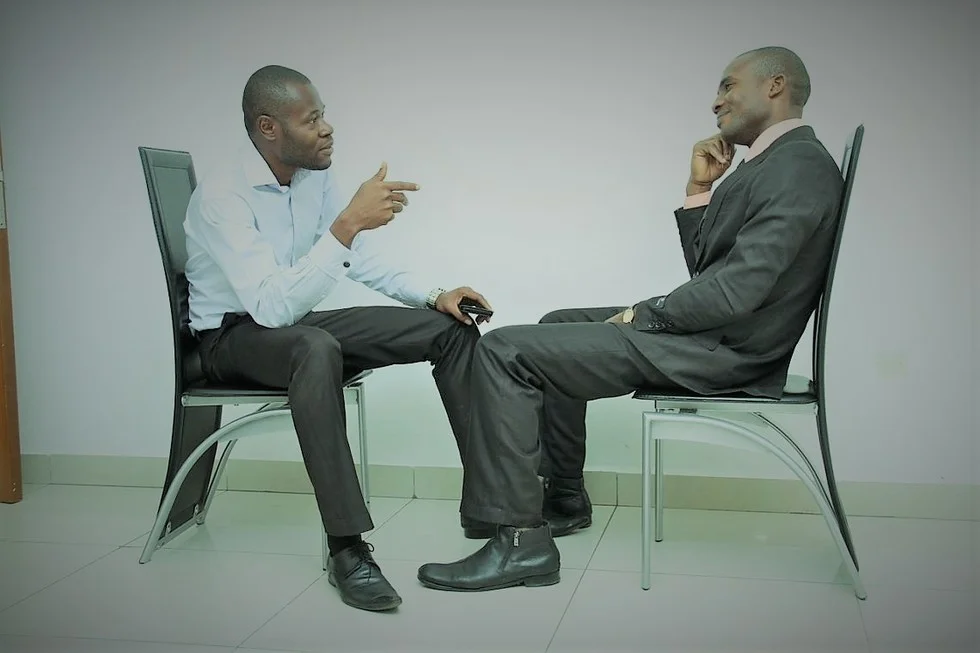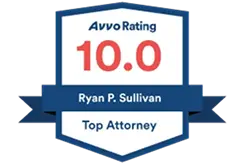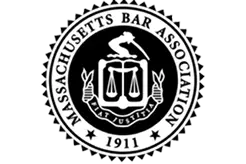Even after your court case is over, its consequences may haunt you for years to come. It should not be that way. If you were convicted, your criminal record will linger long after your debt to society has been paid in full. Adding insult to injury, even if you won your case, the record of the unproven allegation will continue to cast a shadow on you. At Erkan & Sullivan, PC, our criminal defense attorneys believe the past belongs in the past. When your court case is over, you deserve a fresh start, and calling a Lowell expungement lawyer is the best way to get it. Depending on your circumstances, we may advocate for sealing or expungement.
The Balance Between the Public Interest and Your Unburdened Future

In opposing sealing and expungement, courts and commentators have justified broad access to a person’s criminal record on multiple policy grounds. One of the primary interests protected by the First Amendment to the United States Constitution is the concept of public criminal proceedings, described as an “indispensable attribute of an Anglo American trial… whose value is ensuring the accountability of the judiciary to the public.” Commonwealth v. Pon, 469 Mass. 296 (2014). The other core concern is that employers and landlords should have access to information showing that potential employees / tenants have bad character or criminal propensities.
A series of recent reforms reflects a candid re-evaluation of these concerns about sealing and expungement, leading to a re-calibration of the balance. First, the courts now recognize that public access to past cases is of minimal value to first amendment concerns. After all, pending court proceedings remain public – the press and the public are free to attend court, thus promoting transparency and judicial accountability. Second, recent research has reached consensus that “past convictions followed by a lengthy period of law- abiding conduct simply are not relevant in predicting future criminal activity or assessing credibility,” making wide access to criminal records less justifiable in the employment and housing context.
This shift makes it even more critical to work with an expungement lawyer who can navigate the process in Lowell and fight for relief under the updated laws.
Selected Results
Jun. 2024 Lynn Criminal Defense Attorney Achieves Expungement for 1996 Criminal Record
For too long, by depriving individuals of the benefit of a fresh start, society has become complicit in the perpetuation of crime by denying its citizens any legitimate path to success. The best way to stop crime is to allow everyone to participate equally in society.
– Murat Erkan
While the availability of criminal records was historically justified as necessary to protect the public, employers and landlords from criminals, experience teaches otherwise. It is time for society collectively to recognize what is obvious: “gainful employment is crucial to preventing recidivism, and … criminal records have a deleterious effect on access to employment.” For too long, by depriving individuals of the benefit of a fresh start, society has become complicit in the perpetuation of crime by denying its citizens any legitimate path to success. The best way to stop crime is to allow everyone to participate equally in society. Our experienced expungement attorneys plays a critical role in breaking this cycle—helping people in Lowell clear their records and reclaim their futures.
Sealing versus Expungement
Sealing is the legal process by which criminal court appearances and records are hidden from public view. Although the records still exist, unauthorized persons cannot see them. The main sealing statutes are Massachusetts General Laws Chapter 276 § 100A (for misdemeanor and felony convictions), Massachusetts General Laws Chapter 276 § 100C (mandatory sealing of certain non-conviction records and discretionary sealing of others) and Massachusetts General Laws Chapter 276 § 100B (for juvenile records).
Expungement, on the other hand, is the destruction of records associated with an arrest. The main expungement statute is Massachusetts General Laws Chapter 276 § 100K. Expungement is more advantageous because the end result is that the fact of your arrest is essentially eradicated from the public record. Electronic records are deleted; documents are shredded. See Massachusetts General Laws Chapter 276 § 100E. As you can imagine, expungement is available only in a narrow set of circumstances, whereas sealing is simpler and more widely available.
Our attorneys can review your specific case in Lowell to determine if you are eligible for expungement or sealing.
Eligibility for Sealing
There are two types of sealing available in Massachusetts – non-discretionary and discretionary sealing. Under G.L. c. 276, § 100A, convictions that are older than the statutory waiting period, with certain exceptions, are subject to mandatory sealing upon request. Under G.L. c. 276, § 100C, where you have been found not guilty by the court or jury, a no bill has been returned by the grand jury, or a finding of no probable cause has been made by the court, sealing is also mandatory.
There is an exception to the standard sealing rules which exists, despite the fact that it makes little sense. Cases that were dismissed, either by the Court or the government (referred to as a nolle prosequi), are not automatically subject to sealing. Rather, you have to convince a judge that sealing is in the best interests of justice. This is a more complicated and time consuming process in Lowell, where a good expungement lawyer can make a big difference.
The Waiting Periods
Most misdemeanors are eligible to be sealed after three years and most felonies after seven years. The waiting period starts when the case is closed. If you were sentenced to a period of incarceration, the waiting period begins when you are out of jail.
The waiting period is reset whenever a person is charged with a new offense, unless the case resolves in their favor. So a couple of examples: A robbery conviction can be sealed after seven years. If you do not get your conviction sealed, and, say, 10 years later, you are charged with a new felony, a new 7 year waiting period begins at the disposition of the new offense, and your robbery conviction is ineligible for this type of sealing until those 7 years have passed. The same is true for new misdemeanors, though the waiting period is 3 years.
Not every criminal charge will reset the clock. Where the case has resolved in your favor by a ”not guilty” verdict and by certain dismissals, the clock is not interrupted. So, using the same example of a 10 year old robbery conviction, a drunk driving charge from last year, for which you were acquitted, will not reset the clock. You are immediately eligible for sealing of the robbery conviction. However, you still have to wait 3 years from the date of acquittal to seal your OUI/DWI/DUI arrest.
Exceptions to General Waiting Periods
- Any sex offense for which you were required to register as a sex offender cannot be sealed until 15 years have passed from the end of your sentence, including any probation or parole. Regardless of the waiting period, convicted sex offenders may not seal their record at all so long as they have a continuing duty to register as a sex offender. If you were ever classified as a level 2 or level 3 sex offender, your conviction can never be sealed. Even still, if your offense in Lowell occurred prior to the passage of the 2010 CORI reform, you should contact our expungement lawyers. We may still be able to help you.
- Restraining order convictions, even though they are misdemeanors, are subject to a seven year waiting period.
Convictions That Can Never Be Sealed
- “Public justice” offenses: Generally, conviction for offenses such as witness intimidation, perjury, evidence tampering or escape from custody can never be sealed. Resisting arrest used to be non-sealable. Thankfully, recent criminal justice reforms changed that.
- Gun charges: Many firearm convictions can never be sealed.
- Corruption and conflict of interest convictions: For example, if you are convicted of bribing a judge, that one is going to stay on the books forever.
When You Don’t Have Time To Wait
Eligible Cases
You are eligible for discretionary sealing for certain first-time drug possession convictions, and for any case in which your case was dismissed or nolle prossed.
The Court Process
Discretionary sealing begins with the filing of a petition in Lowell court, which our expungement lawyers will prepare for you. The petition will help the court to understand that “good cause” exists to support sealing your record early. Recent decisions by the Massachusetts Supreme Judicial Court have made our job of showing eligibility much easier. We can establish good cause by showing that you face or may face an unreasonable disadvantage arising from your criminal record. Some of the many things the court can consider:
- Qualifications coupled with a genuine desire to work in a field where a CORI check places you at risk of rejection
- Disadvantages in seeking housing
- Inability to volunteer or participate in community activities
- Potential for being bypassed for promotions or raises because of your record
- Potential stigma associated with your past charges
- Evidence of rehabilitation
- Evidence that the original charges lacked merit or were otherwise problematic
Expungement – Let’s Grab That Eraser.
As we mentioned earlier, expungement is available only in a narrow class of cases. Nevertheless, for those eligible, expungement is a powerful remedy which involves the destruction of virtually all records related to the charge. Following criminal justice reform, there are now two circumstances where expungement is available.

Two offenses by juvenile, youthful offender, or person under 21
Expungement of up to two offenses (or more if the offenses arose from the same incident) may be available for individuals who were juveniles or under 21 at the time of their offense. The relevant statutes are Massachusetts General Laws Chapter 276 § 100G (under 21 years old at time of conviction), Massachusetts General Laws Chapter 276 § 100F (juvenile and youthful offender convictions) and Massachusetts General Laws Chapter 276 § 100H (juvenile and youthful offender non-convictions). However, not all such convictions may be expunged. Massachusetts General Laws Chapter 276 § 100I sets forth exclusions. This form of expungement is not available:
- If you have ever been charged with another offense after the potentially eligible offenses. That means that, for example, the vandalism and disorderly conduct convictions you received when you were nineteen and twenty years old will become ineligible for expungement if you later got arrested – say, for drunk driving. Even if your new case gets dismissed, even if you are acquitted at trial, you are out of luck under the technical requirements of the statute. My two cents? The subsequent offense disqualifier was a piece of compromise legislation. It seems difficult to justify intellectually. If the charge against you lacked merit, it makes little sense why it would preclude relief under the statute. If you find yourself in this position, contact me; I am willing to discuss ways in which we can avoid this absurd result for you.
- If your offense is statutorily excluded. Only some offenses are subject to this type of expungement. Excluded offenses include aggravated assault, robbery, offenses involving death or serious injury, offense against the elderly or disabled, sex crimes involving children, restraining order convictions, domestic violence charges, and gun charges. The exclusions are set forth in Massachusetts General Laws Chapter 276 § 100J.
Finally, note that the waiting periods that apply to sealing also apply to this form of expungement.
Expungement in the interests of justice
Mass. Gen. L. Ch. 276, § 100K permits expungement of any juvenile or adult case in certain circumstances. This is another new feature of the 2018 criminal justice reform package. Before 2018, there existed no statutory basis for expungement. Instead, expungement was a “judicially crafted” remedy available only in the most extraordinary cases, and only in circumstances where sealing under 100A or 100C was not available. Today, expungement is statutorily available if we are able to satisfy the court by “clear and convincing evidence” that the case resulted from:
- False identification or the unauthorized use or theft of your identity
- An offense which is no longer a crime, such as possession of small amounts of marijuana and presence where heroin is kept
- Demonstrable errors by law enforcement
- Demonstrable errors by civilian or expert witnesses
- Demonstrable errors by court employees
- Demonstrable fraud perpetrated upon the court
Only a highly skilled attorney should handle a petition for expungement. This sort of legal trailblazing is the province of only the most experienced, reputable, and persuasive attorney.
– Ryan Sullivan
Since this is a newer piece of legislation, the courts have not yet had an opportunity to flesh out what does or does not meet these criteria. For this reason, only a highly skilled attorney should handle a petition for expungement in Lowell. This sort of legal trailblazing is the province of only the most experienced, reputable, and persuasive attorneys.
One of the more interesting elements of the new expungement law is that cases arising as a result of either “demonstrable errors” by law enforcement, civilians, or expert witnesses may be expunged. It is easy to envision the broad application of these provisions.
Errors by civilian witnesses may include mis-identification, mistake of fact, erroneous testimony arising from a failure of memory, misperception, misstatement, alcohol or drug impairment, or simply poor judgment.
Errors by experts contemplate those cases where the foundation for scientific or technical opinions central to your case were faulty or tainted by misconduct. An example that comes to mind might include allegations of child abuse tainted by improperly leading or suggestive interview techniques. Instances of malfeasance, such as charges connected or tainted by the drug lab scandals which have rocked this state, are also sound predicates for expungement.
[Q]uestionable tactics infect many, if not most, criminal cases we have studied. Illegal stops, use of excessive force, search and seizure violations, improper / suggestive identification procedures, and coerced confessions and Miranda violations are widespread. Each of these instances provides a promising platform upon which to construct a case for expungement.
– Murat Erkan
Perhaps the most interesting of all is the concept of expungement predicated on law enforcement errors. Quite simply, constitutional violations at the hands of police are rampant. In our experience, questionable tactics infect many, if not most, criminal cases we have studied. Illegal stops, use of excessive force, search and seizure violations, improper / suggestive identification procedures, and coerced confessions and Miranda violations are widespread. Each of these instances provides a promising platform upon which to construct a case for expungement.
Most lawyers will never pursue expungement for their clients. Sadly, a good many lawyers do not keep up with the changes in the law, and thus have no idea that expungement is now an available remedy for their clients. Other lawyers may be intimidated because 100K expungement is unfamiliar and uncertain. They lack the creativity and confidence required to lead the charge without other lawyers first showing them the way. At Erkan & Sullivan, PC, we are constrained by neither of these weaknesses. If you would like to pursue this highly advantageous form of relief, your first step is to reach out.
Other Helpful Information on Expungement and Sealing
If I get my CORI sealed, will people know I have a sealed record?
No. This is a myth which has no support in law or fact. When a CORI check is conducted after a record is sealed, CORI will report that there is “no record” found.
If I get my CORI sealed, will my FBI record still show my court cases?
The answer to this question is a bit complicated. Current Massachusetts law (Massachusetts General Laws Chapter 276 § 100T) provides that, when a CORI sealing petition is allowed, the Commissioner of Probation must furnish notice to the FBI together with a request that the bureau seal its corresponding records as well. This is a new legal requirement. The problem is, there is no available data in terms of whether the commissioner of probation is in compliance with the law. Alternatively, there is a procedure by which we can request that the FBI update your record to reflect that it is sealed. This is, in essence, a second form of sealing which we can perform for you. The process requires communication with an FBI liason, to whom we will forward relevant police and court records in support of the request.
After sealing, can private background checks reveal my record?
The law now requires that DCJIS (the Department of Criminal Justice Information Services) automatically withhold cases that are eligible for sealing. This may or may not in fact occur. To the extent that it does, some employers / entities will resort to one of many private services that check records at the courthouse instead of simply running a CORI report. This is a workaround that, while sneaky, remains legal. Sealing your record protects you from this practice. The law now requires that, once your record is sealed, the corresponding courts also seal their records – even to private background check services. When your record is sealed, the court must respond to inquiries by reporting that “no record” was found. Mass. Gen. L. c. 276, § 100A. In sum, sealing your record means that we will close the door on this loophole.
What should I say in response to inquiries about my prior record after sealing?
You are legally permitted to, and should, respond by saying you have no record. This applies whether you are seeking employment, a professional license, or housing.
Who can see my record after it is sealed?
Law enforcement agencies, courts, probation officers, social workers investigating abuse, and certain “appointing authorities” will still be able to see your sealed cases. As a result, if, for example, a police officer pulls you over and asks about your prior record, you should either not answer (they generally have no right to ask) or, if you must answer, answer truthfully. Additionally, be aware that employers offering employment in positions of special trust, such as childcare, will have access to sealed records.
“Ban the box.”
It is a violation of Massachusetts law for most entities to request that an individual furnish a copy of his CORI report prior to receiving a job offer under Massachusetts General Laws Chapter 151B § 4(9½). Yet, we have encountered instances where our clients, particularly those seeking employment out of state, are asked to furnish a copy of their Massachusetts criminal record with their job application. This presents a prickly problem. Despite the illegal nature of the request, it goes without saying that starting a fight with a potential employer over providing your record is not a great way to land a job. In these circumstances, our attorneys recommend sealing or expunging your record in advance of completing the application in Lowell. You should know that in previous years, your personal CORI report (the one you request on your own behalf) would still show sealed cases. Criminal justice reform has changed that. As a result, even your personal CORI report will show “no record,” after it is sealed, effectively eliminating this problem.
Consider obtaining certified copies of your record before sealing or expungement.
Just because you never know what will happen, how the law will change etc., I advise you to consider obtaining certified copies of your criminal court records, and storing them in a safe place. You should do this before sealing or expungement. Simply put, it is better to have copies and not need them than the other way around.
A Special Note for Non-Citizens and Potential Applicants for High Security Clearance or Appointed Positions
As a general rule, sealing or expungement is a terrible idea for non-citizens. There is a myth that sealing prevents immigration officials from “seeing” your record and using it as a means to deport you or deny you important immigration benefits. This could not be further from the truth. Immigration will have law enforcement and court level access to sealed charges. Sealing these records will provide no protection at all. Even worse, since sealing and expungement reduces or eliminates access your court records, you may find yourself unable to produce valid records of your court appearances, the disposition of which it falls upon you to prove. Not all crimes and dispositions create immigration problems. If you are unable to establish the nature of your charges or the way they were resolved, you are in a poor position to seek immigration benefits or avoid possible removal.
The perpetuation of this myth also leads non-citizens to incorrectly state they have “no record” on their immigration applications. This is a huge mistake which can create bigger problems than the criminal record itself. The fact that your case may be sealed does not mean that it did not occur. Immigration will likely view this circumstance as a false statement, which constitutes independent grounds not only to deny immigration benefits, but to seek deportation.
The same is true for those seeking jobs in law enforcement or other appointed positions. Sealing or expungement in Lowell may deny you access to information which you must present in seeking those positions—another reason to speak with a lawyer before taking action.
Consult Our Lawyers About Expungement in Lowell Today
At Erkan & Sullivan, P.C., our attorneys are ready to fight for your right to move on. The law has changed — now let’s make sure your life can, too. Contact a Lowell expungement lawyer today.


 (978) 474-0054
(978) 474-0054 





